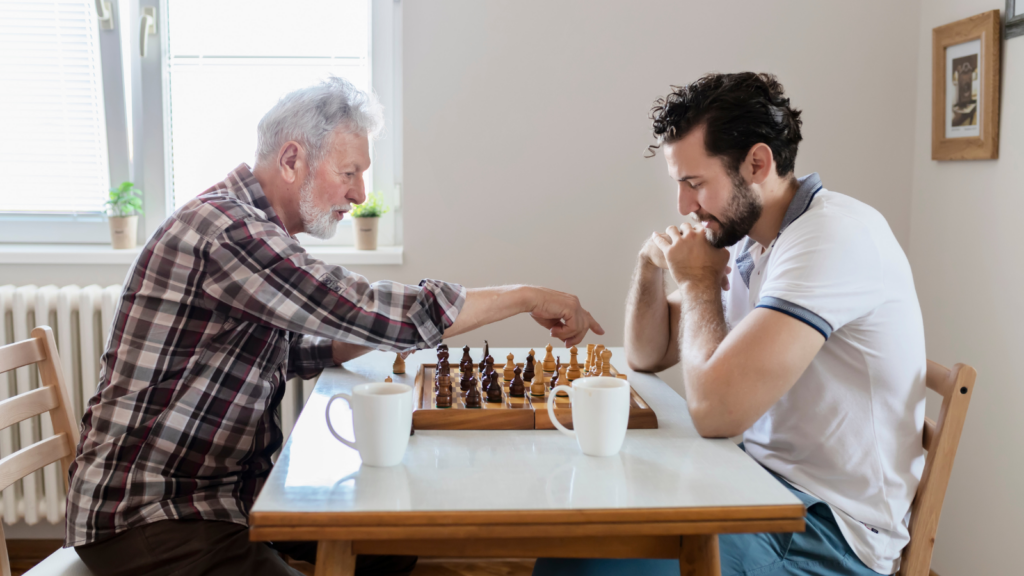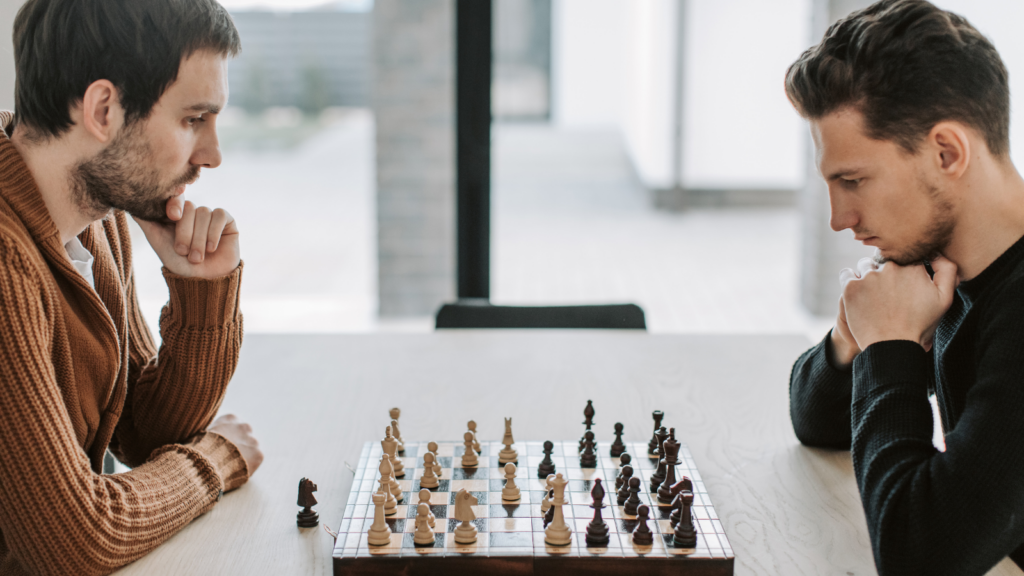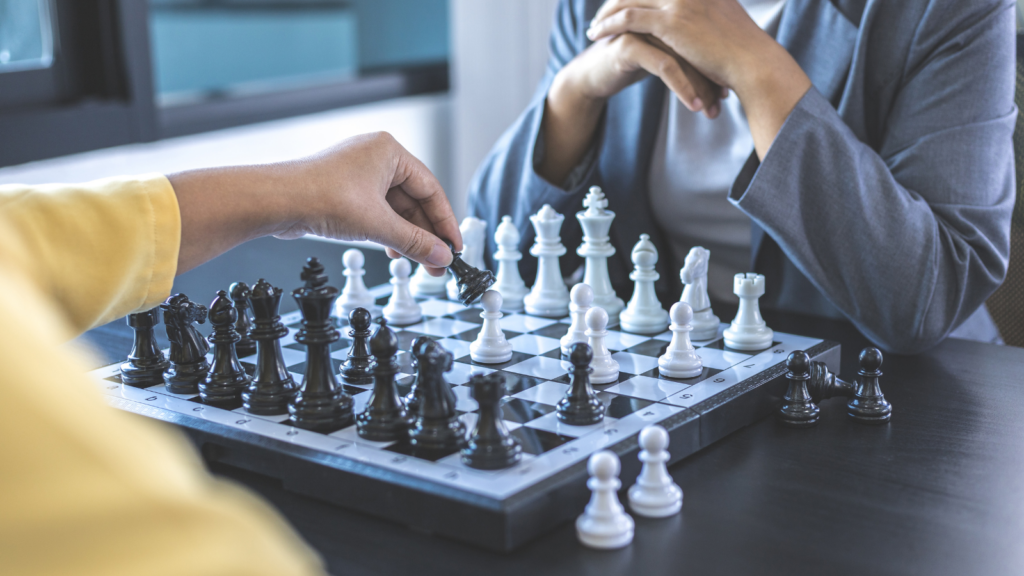In the intricate world of chess, each move is a testament to strategic thinking. It’s a game that’s not just about the kings and queens, but also about the pawns and knights, each with their own roles in the grand scheme. This article delves into the fascinating correlation between chess and strategic thinking.
So, whether you’re a seasoned chess player or someone who’s just starting to appreciate the game, this article offers insightful perspectives on how chess can refine your strategic thinking skills.
Chess and Strategic Thinking
Defining Strategic Thinking in Chess

Strategic thinking in chess revolves around the ability to anticipate, make sound decisions, and adapt swiftly. Chess players, even at the rookie level, practice these skills with every move, plotting course through careful examination. A strong chess player perceives the board not just as a field of action but as a map of possibilities.
For instance, the development of pieces on the board isn’t simply for defense or attack; it conceives a future scenario where the power dynamics could shift. In essence, chess and strategic thinking implies looking beyond the present, keenly assessing available options and their potential consequences.
Key Strategic Concepts in Chess
Optimal chess play hinges on the comprehension of key strategic concepts. These facets of the game encompass understanding the pivotal significance of opening moves, proficiency in mid-game tactics, and proficient endgame techniques. Each phase of the game entails a distinct set of rules and considerations, thus demanding unique approaches and decision-making capabilities.
The Importance of Opening Moves
Opening moves in chess set the stage for the game. This initial phase primarily involves setting up the board, controlling the center squares, developing pieces, protecting the king, and opening lines for rooks. A well-played opening phase can help a player seize control early in the game and leaves the opponent working at a disadvantage. For example, opening strategies like the Sicilian Defence or the Queen’s Gambit enable the player to orchestrate the initial pace of the game and tap into positional advantages.
Mid-Game Tactics and Strategy

The middle game, arguably the most complex phase, is where the bulk of the action unfolds. It dramatically hinges on tactical nous and strategic planning. Key factors to consider during the mid-game include careful piece positioning, exploitation of opponents’ weaknesses, time management, and maintaining a balance between attack and defense.
For instance, the strategic planning skill required to execute operations like double attacks, pins, forks, and skewers readily illustrates the intricacy of mid-game tactics.
Endgame Techniques and Their Impact
The endgame phase is where everything boils down to. It often involves fewer pieces on the board, but the stakes are significantly higher. Mastery over key endgame concepts such as king centralization, pawn promotion, and the opposition can often turn the tide of the game. While basic endgames—like King and Pawn versus King—might sound simple, fully optimizing these situations can be a complex matter. For example, the concept of ‘Zugzwang,’ where any move a player makes weakens their position, is a quintessential aspect of advanced endgame strategy.
Benefits of Chess on General Decision Making
Real-Life Applications of Chess Strategies

Chess challenges its participants with a variety of strategic concepts, from controlling the center in the opening phase, positioning pieces effectively in the mid-game, to pawn promotion in the endgame. These strategies parallel real-life scenarios, helping chess players negotiate life with a more strategic approach. For instance, chess players learn the pertinence of prior planning, as seen in opening moves which are akin to setting long-term goals and objectives in real life.
One undeniable implication of engaging in chess is the enhancement of problem-solving skills. By simulating complex scenarios requiring critical thinking, chess beckons players to solve intricate problems on the board. These situations foster problem-solving skills, as they typically involve evaluating multiple alternatives, considering short and long-term consequences, and making the most advantageous decision.
Chess Isn’t Just a Pastime
Chess and strategic thinking goes in hand; it’s a brain-boosting tool that sharpens strategic thinking. It’s a mental workout that enhances cognitive skills, decision-making, and problem-solving abilities. By drawing parallels between chess strategies and real-life scenarios, it becomes clear how valuable chess can be in everyday decision making.

